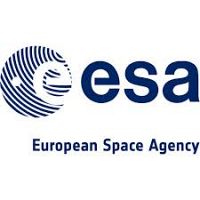›5th Space Debris Re-entry Workshop
The atmospheric re-entry of return capsules and manned space objects has been under continuous study since the beginning of the space age. Nowadays also the monitoring of the re-entry of space debris objects and the prediction of re-entry break-up processes has become part of nominal operations and mission design.
The first international workshop on re-entry of space debris was organised by ESA in 1983 in response to the re-entries of Skylab and Cosmos-1402, and has been repeated over the past decades in response to other significant re-entry events. Since then the topic has broadened from individual re-entries to include, among other, full object catalogue predictions, orbital lifetime assessment, and thermo-mechanical fragmentation in the lower atmosphere. From the point of view of space debris, the entire orbital lifetime after the end of mission down to potential impact on ground needs to be addressed.
The intended audience for these workshops are academia, spacecraft, launcher, and space surveillance operators, space agencies, and industry. Participation is free of charge. The proceedings of the past four workshops are available here by selecting the corresponding names from from the 'Conference name' list.
5th Space Debris Re-entry Workshop (2020; Virtual)
The 5th International Space Debris Re-entry Workshop will take place 2 December 2020 and is organised fully virtually ( 3-4 hour event, PM CEST ).
This workshop aims to address the side effects of the increased traffic to orbit which triggered a renewed interest in the practicalities of having objects, large and small, re-entering uncontrolled after the end of their mission. The symposium style for the past events makes place for a workshop around the open problems burgeoning by the increase in uncontrolled re-entry "traffic":
- The non-uniform distribution of the Earth gravity field and atmospheric density, combined with the forecast of space weather indices, imply multi-modal distributions on reaching the re-entry interface which differ when the timescale goes from hours up to years. Various techniques in uncertainty propagation, including aspects of space surveillance and space weather, are under development or have been explored, but need to be benchmarked and cross-compared to see how they suit the use cases. Issues are further exemplified when moving from 3 degrees of freedom to 6 degrees. How to transition from uncertainty assessment to operational products when it comes to re-entry predictions and orbital lifetimes?
- Once the re-entry interface is reached, a strong driver in the risk associated to re-entry events is the first fragmentation of the object within the transition regime between free molecular and continuum aerothermodynamics. Early stage research on thermal and mechanical demise physics imply large differences in predicted secondary fragmentation and the heat seen by components, with a strong need for experiments and observations identified. Which multi-physics driven break-up processes produce predictions which can be verified on a macroscopic level to cause first fragmentation?
The submission of abstracts (250 words maximum) around the topics above is encouraged, but the venue is open to other topics related to general orbital lifetime estimation, re-entry predictions on catalogue level, low thermosphere orbit observations and orbit determination, material and aerothermal responses of re-entering objects in the continuum regime. Among the objectives of the workshop are linking space surveillance, astrodynamics, and re-entry physics to cover all aspects of the problem. Based on the abstracts submitted we will reach out to those who have submitted to see how to best facilitate the discussion on the topic.
We do not require a registration fee but we do require a registration request to scale the online format. Please bear in mind the following dates:
- Abstract deadline: 19th of October 2020
- Registration deadline: 27th of November 2020
To register, simply send an e-mail to reentry_support@esa.int including the name, contact details, and affiliation of the registrant. A confirmation will follow. For all clarity: registering for an SDO account on this web page is not required in order to attend the event, nor will having such an account imply access to the event.
Tweets by spaceagendaTrack this event on your Apple calendar














 Online
Online